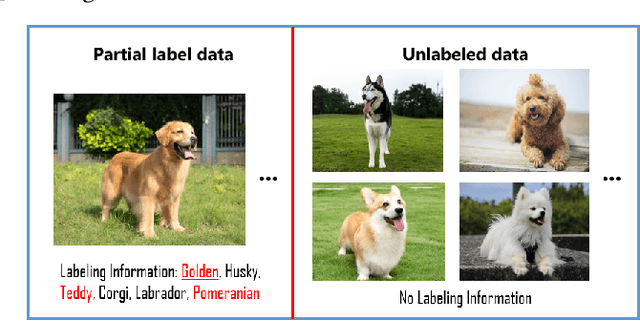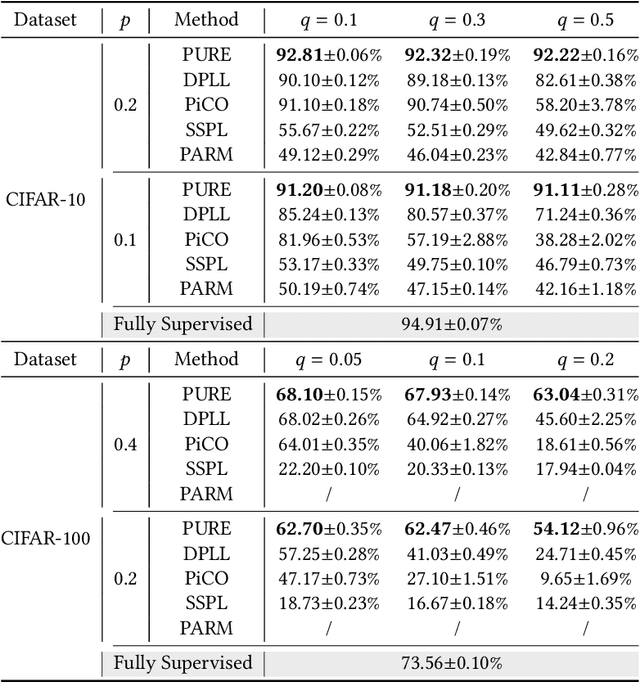Towards Mitigating the Problem of Insufficient and Ambiguous Supervision in Online Crowdsourcing Annotation
Paper and Code
Oct 20, 2022



In real-world crowdsourcing annotation systems, due to differences in user knowledge and cultural backgrounds, as well as the high cost of acquiring annotation information, the supervision information we obtain might be insufficient and ambiguous. To mitigate the negative impacts, in this paper, we investigate a more general and broadly applicable learning problem, i.e. \emph{semi-supervised partial label learning}, and propose a novel method based on pseudo-labeling and contrastive learning. Following the key inventing principle, our method facilitate the partial label disambiguation process with unlabeled data and at the same time assign reliable pseudo-labels to weakly supervised examples. Specifically, our method learns from the ambiguous labeling information via partial cross-entropy loss. Meanwhile, high-accuracy pseudo-labels are generated for both partial and unlabeled examples through confidence-based thresholding and contrastive learning is performed in a hybrid unsupervised and supervised manner for more discriminative representations, while its supervision increases curriculumly. The two main components systematically work as a whole and reciprocate each other. In experiments, our method consistently outperforms all comparing methods by a significant margin and set up the first state-of-the-art performance for semi-supervised partial label learning on image benchmarks.
 Add to Chrome
Add to Chrome Add to Firefox
Add to Firefox Add to Edge
Add to Edge